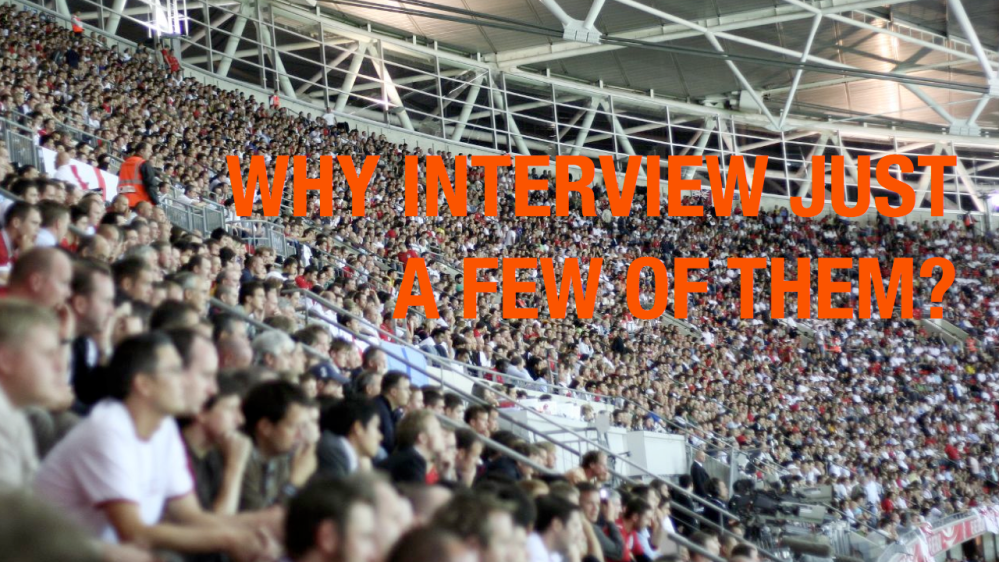This is, more or less, the text of my presentation to the news:rewired conference at Microsoft HQ in London today.
UPDATE: The BBC College of Journalism has posted video of my talk.
Maybe journalists shouldn’t tell stories so much. Stories can be a great way of transmitting understanding about things that have happened. The trouble is that they are actually a very bad way of transmitting understanding about how things work. Many of the most important things people need to know about aren’t stories at all.

But this is an issue with many, many stories in it, such as
That’s a story. Our work as journalists involves crafting rewarding media experiences that people want to engage with. That’s what we do. For a story, that means settings, characters, a beginning, a muddle and an end. That’s what makes a good story.
But many things, like global climate change, aren’t stories. They’re issues that can manifest as stories in specific cases.
And there’s the rub; in order to tell stories about these big, systemic issues, journalists need to create a microcosm.
This can work. I’ve read, and watched, some very good pieces of journalism attacking specific aspects of a big issue. But the way that stories transmit understanding is only one way of doing so. When it comes to something else – a really big, national or world-spanning issue, often it’s not what happened that matters, so much as how things work.
In the pluralist democracy our media is supposed to support, figuring out how things work is vitally important for the public. There are lots and lots of systems that people interact with:
The energy market.
Parliamentary government.
The health care system.
The global climate.
I could go on. There are many systems like this, which deeply affect people’s lives.
When it comes to understanding a system, though, the best way is to interact with it.
Play is a powerful way of learning. Of course the systems I’ve listed above are so big that people can’t play with them in reality. But as journalists we can create models that are accurate and instructive as ways of interactively transmitting understanding.
I use the word ‘play’ in its loosest sense here; one can ‘play’ with a model of a system the same way a mechanic ‘plays’ around with an engine when she’s not quite sure what might be wrong with it.
The act of interacting with a system – poking and prodding, and finding out how the system reacts to your changes – exposes system dynamics in a way nothing else can.
That’s why, in my current project, we’re using interactive methods, and no storytelling. The project is called Britain’s Real Class System and it’ll be launching in the first quarter of 2011. It’s the largest social investigation ever conducted in the UK. As we’re pre-launch I can’t tell you too much here, but I can explain the basics.
The Problem with Class
There’s a problem with class in the UK. The system right now is organized into a working/middle/upper class pyramid. This is essentially a legacy of a Victorian industrial society which has almost entirely ceased to exist. When someone like Alan Sugar can call himself working class, and someone like Lakshmi Mittal isn’t considered upper-class, there’s obviously a problem in the system. So the point of our investigation is to find out what Britain’s class system actually is, today.
But telling a story about this huge system is almost impossible. It’s like fish trying to tell a story about water.
Stage 1 is an interactive survey that asks people all sorts of things about their interests, their attitudes, and many other questions relevant to their position in society. It’s based on the BBC’s LabUK platform, which is the BBC’s scientific survey system. This will allow us to effectively interview hundreds of thousands of people about class. By taking the survey, people will find out something about themselves: namely, how their wealth, social contacts and cultural range compares to that of other people in the UK. Everyone likes to know where they stand. And they’ll be giving us invaluable data as they find out.
We’ve constructed this survey in partnership with some top sociologists, and a very talented scientific team will analyze the data. the output will be a massive interactive visualization that lets people explore Britain’s class system as it actually is.
Of course we haven’t designed this yet, but we’ve got some of the best people in the world ready to pounce on the data. The result will be something on the level of Gapminder or the NHS Atlas of Risk or similar. Users will be able to see the results on a map, zoom in on their home town, compare men vs. women, or urban vs. rural, or any permutation they like. By playing with the system, the users will be able to understand functionally how class works in the UK.
Both parts of this project demonstrate compelling interactivity. It’s the interactive equivalent to a good story. The best documentaries and text journalism are interesting to watch and read for their own sake, even if you don’t care about the issues. They’re well constructed stories.
Here, we’ve got the interactive equivalent. We’re creating systems that are engaging and fun to interact with. They’re surprising, they pique your curiosity. And hopefully, they’ll increase understanding of British society, one of the most important systems affecting people’s lives here.
And there’s not a trace of storytelling in sight.











Very interesting idea indeed.
Out of a similar reflection, I am currently working, together with a team of journalists at Lemonde.fr and game developers on a videogame production platform journalists could use to design playable situations, such as election races and other competitions. Our first game will be published on the website at the end of next march.
We also have a blog about the relationships between journalism and video games:
http://newsgames.blog.lemonde.fr
(Though it is only available in French…)
I’m looking forward to seeing the results of your work!
Very interesting blog, M. Maurin. (Et aucun problème avec le Français, je suis bilingue!)
Seems like you’ve been writing about exactly the sort of interactive projects that I am advocating. There’s a lot of potential in something like Homeland Guantanamos and even something as simple as Harpooned.
These are both great examples of interactivity used to inform. I think there’s an important distinction to make between what is and what isn’t a game, though. Both of the examples above are interactive pieces, but Homeland Gitmo seems like it isn’t a game, while Harpooned clearly is. Homeland Gitmo is a graphical exploration. But the key point of a game is that it teaches through your actions. That means you have to be able to fail while playing. A good game compels you to try it over and over again, and while you do this you are learning how to play better. This is the fun of a game – learning new skills.
I definitely agree with you about the positive aspects of game mechanisms that compel you to try it over and over again, to understand the modelled system and get better at manipulating it. In fact, that’s the kind of game we, at Lemonde.fr, are currently working on.
But I’d probably be less restrictive than you are on the definition of what a game is. To me, not every game has to be based on this “simulation” mechanics to be efficient at “teaching” something. This point of view may be due to my culture as a gamer. I personally got the most thrilling experiences playing point and click adventure games, which were probably quite close to what you call “interactive experiences”, but which I always considered as games of their own kind.
Game over did almost not exist in adventure games (but game over tends to disappear from most of the game types nowadays – a shame, if you ask me). Did I “learn” anything by loosing ? Certainly not. Did I do so by trying and trying again, exploring, combining items, talking to NPC… You bet I did. Those were more than interactive stories, they were coherent fantasy universes I had to progress in to understand them. Then again, I really felt like playing, I felt compelled to explore the world thanks to the goals the game challenged me to reach, and I surely learned through my actions. But more by thinking than by failing.
But we agree on the point that Homeland Gitmos merely is a game. It lacks ambiance, charisma, a strong scenario, and the challenge it proposes is way too weak to really bring the player to the kind of “craving for exploration” I describe above (quite awkwardly. I hope you’ll excuse my poor English). To this extend, it does not propose satisfying use of game mechanics to communicate information.
Sounds to me like we’re on the same page, but discussing it in different ways.
You’ve probably read his stuff already, but if you haven’t, check out Raph Koster’s work on the Theory of Fun . He explains far better than I do what I mean about learning through failure in games. It’s the repeated trying to interact with the game system that teaches you its rules. You learn little by little, through successes, exploration and failures. Just like you described in the adventure games you love. Were any of them the MYST series, perhaps?
Yes, I’m positive we’re on the same page.
I’ve never been a big Myst enthusiast. I was more thinking about games such as Monkey Island, Grim Fandango, and other adventure games, which were strongly narrative. But Koster’s work on the Theory of Fun still applies !
Whats up! I simply would like to give a huge thumbs up for the nice information you may have here on this post. I will probably be coming back to your weblog for extra soon.